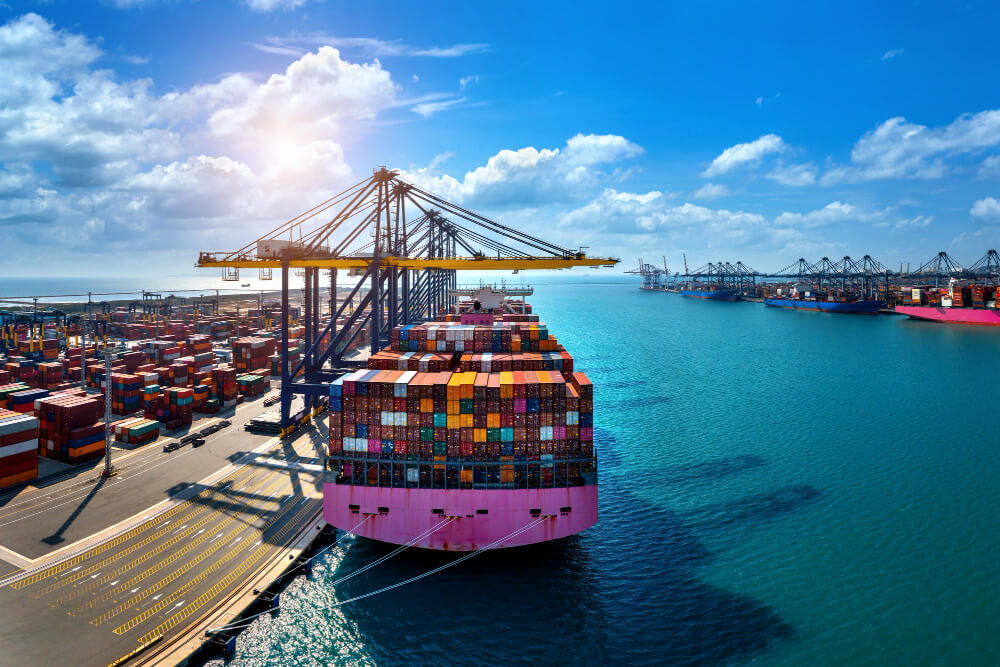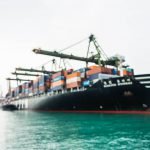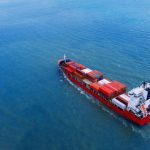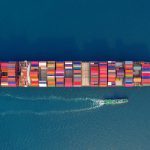The Challenges and Opportunities in the Maritime and Shipping Industry
In the world, over 80% of commercial cargo volume is transported by sea. Despite the challenges posed by the Covid-19 pandemic, which created significant obstacles to international cargo transportation, the Vietnamese economy over the past year, particularly in the maritime sector, has continued to witness positive growth and development.
The main reason for this development is Vietnam’s economy is focusing on its export activities, which play a significant role in the global supply chain, many Vietnamese seaports are operating at near-maximum capacity. This not only brings challenges for development but also provides opportunities for enterprises in the maritime and shipping industry to demonstrate their strengths and rise to build their reputation in the region. Through this article, Phuoc & Partners will analyse the challenges and opportunities that enterprises operating in the maritime and shipping industry will face, along with legal considerations that enterprises cannot overlook during implementation.
Current situation of enterprises operations in the maritime and shipping industry.
Currently, although Vietnam’s maritime and shipping industry is gradually asserting its position in the Asian market, the scale of Vietnam’s fleet is still small to compete in the international transportation market, as the world is trending towards larger vessel sizes to optimise transportation costs. Vietnam’s fleet of maritime vessels has seen an increase in the number of large vessels, total capacity, and tonnage; however, they are still primarily suitable for domestic or short international coastal transportation markets within the region.
Vietnamese enterprises often face financial constraints, leading to difficulties in meeting the requirements for registering vessels under the Vietnamese flag according to Article 7 of Decree No. 171/2016/ND-CP, which stipulates that vessels must be under 15 years old[1]. This results in Vietnamese enterprises investing in fleets registered under foreign flags, reducing the domestic fleet size, decreasing the market share of national shipping in import-export transportation, and losing revenue from taxes and fees associated with import procedures and registering vessels under the Vietnamese flag for the state.
Other related issues such as maritime transport workforce training and recruitment are also being addressed by enterprises, the number of trained and skilled seafarers has increased both in quantity and quality, in response to the growing demand for domestic and export seafarers. Safety and security checks on maritime vessels, environmental protection, and pollution prevention are also areas of concern for authorities. In response to maritime accidents, officers and seafarers are intensifying vessel inspections to identify causes and implement appropriate preventive measures.
Challenges and opportunities for enterprises in the current situation
Challenges for enterprises in the maritime and shipping industry:
The Vietnamese maritime industry currently faces numerous challenges and difficulties in competing with large-scale maritime fleets. To address this demand, Vietnamese enterprises must intensify capital mobilisation efforts and upgrade vessels to be more competitive in the international market in terms of scale, tonnage, and optimal capacity. Additionally, Vietnamese enterprises need to invest in enhancing the operational and management capabilities of their maritime fleets, ensuring efficient vessel operations, high safety standards, and optimal resource management. To expand its scale and enhance competitiveness, Vietnam needs to seek international cooperation opportunities in the maritime and shipping industry to share experiences and receive resource support.
One challenging issue for enterprises is the financial burden of complying with the age requirements for vessel registration under Vietnamese law to obtain Vietnamese nationality for their vessels. For vessels that meet the registration criteria, the shipping costs for these enterprises also increase, reducing potential customer demand. Furthermore, despite owning large seaports, infrastructure at these ports is unevenly developed nationwide due to insufficient funding. Vietnamese enterprises may consider requesting financial support from the Vietnamese government or exploring reasonable loan policies to establish a solid foundation for developing both their individual reputation and the country’s reputation as a whole.
The current economic downturn also poses pressure on port and maritime transport enterprises as consumer demand in the US and Europe decreases significantly, along with inflationary pressures. Therefore, enterprises need to proactively adapt their business operations to avoid losses in the final months of the year.
Opportunities for Enterprises in the Maritime and Shipping Industry:
Alongside the aforementioned challenges, enterprises also receive numerous opportunities to leverage and grow. From exploiting prime geographical locations to investing in infrastructure and benefiting from government policy support, enterprises can capitalise on these gaps to develop and expand their business operations:
- Investing in improving the scale and quality of the fleet: Small enterprises have the advantage of human resources and creative, resilient capabilities. These enterprises should leverage their resources to develop operational strategies that showcase their business capabilities, attracting investment from potential investors to expand their import-export freight transportation activities. Additionally, enterprises should seize opportunities arising from policies and support from the Vietnamese Government.
- The strengthening of safety measures, security checks, and environmental protection in maritime and shipping operations is not only a legal obligation for each enterprise but also an opportunity for enterprises to enhance their reputation and attract customers.
- Vietnam boasts a favourable geographical location with a significant coastline and lies amidst crucial sea routes such as the East Sea and international waters, granting it a strategic geographic position in cargo transportation. Therefore, businesses should capitalise on this advantage to create opportunities for expansion and provide high-quality maritime transport services. Additionally, periods of economic downturn present opportunities for maritime enterprises to showcase their outstanding development potential in international markets. By seizing this situation, enterprises will have the opportunity to stand out and assert their position.
- Vietnam is opening up and seeking opportunities for collaboration with other countries in the maritime and shipping industry. Enterprises can leverage this opportunity to expand their business networks and collaborate with international partners.
Legal issues that enterprises operating in the maritime and shipping industry cannot ignore
The dynamism of the maritime and shipping industry also comes with inherent risks of disputes. Disputes related to maritime and shipping often tend to be complex due to the involvement of foreign elements. Therefore, enterprises operating in this field must equip themselves with legal knowledge to avoid potential risks.
For enterprises engaged in international maritime transport, they must meet legal requirements regarding financial conditions through financial guarantees with a minimum amount of 05 (five) billion Vietnamese Dong or purchasing insurance to ensure the shipowner’s obligations towards seafarers as prescribed, having the legal right to use at least one vessel, and the enterprise must also establish or hire an organisation and personnel in accordance with the law[2]. In case an enterprise engaged in international maritime transport fails to meet the specified conditions, it may be subject to administrative penalties ranging from VND10,000,000 to VND20,000,000. Moreover, the violating enterprise may have its business license suspended for a period of 1 to 3 months for the violation.
Certain issues remain incomplete due to legal regulations concerning seafarers being stipulated in various documents yet lacking consistency in matters related to salary levels, insurance regimes, working hours, etc. Furthermore, the legal provisions regulating issues related to seafarers lack specific suitability, especially for seafarers working on Vietnamese ships abroad. Therefore, enterprises involved in providing seafarers or those hiring seafarers need to exercise caution in negotiating with seafarers, establishing and applying seafarer management systems in compliance with legal regulations.
Enterprises must also equip themselves with knowledge related to resolving disputes, jurisdiction, and applicable laws concerning each individual vessel in various territorial waters and nationalities the vessel is registered under.
The above is an overview of our legal perspective on The Challenges and Opportunities in the Maritime and Shipping Industry that Phuoc & Partners share with readers. If you have difficulties in finding a Law Firm to advise and support in the relevant legal field, please contact us. Phuoc & Partners is a professional consulting firm established in Vietnam and currently has nearly 100 members working in three offices in Ho Chi Minh City, Hanoi and Danang. Phuoc & Partners is also rated as one of the leading consulting firms specialising in business law in Vietnam that has leading practice areas in the legal market such as Labour and Employment, Taxation, Merger and acquisition, Litigation. We are confident in providing Clients with optimal and effective service.
[1] Aricle 7.1(b) of Decree No. 171/2016/NĐ-CP
[2] Article 5 of Decree 160/2016/ND-CP, amended by Article 3.1 of Decree 147/2018/ND-CP










